Oh, hey guys. Why is everyone so angry at me?
Athena, you’ve written over and over and over again about representation in media, and how important it is for media to have characters who are women, and how representation is sometimes skewed in video games!!
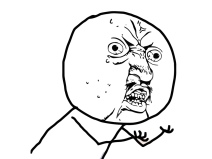
Got it. If you’ve been following this blog, you are probably thinking that the title seems a little misleading, but stick with me, and by the end of the article I hope you’ll see why I don’t particularly like “female characters,” and maybe you’ll come to not like them so much, either.
A Brief History
For those of you who might not know, Aether from Lost to the Aether has been writing a miniseries on women in games, entitled “Lagging Behind on the Leading Ladies.” If you haven’t already, definitely check out parts one, two, and three when you get a chance, because they are fantastic and well-informed reads.
He made a very interesting observation about female characters being remarkable simply because of their gender. And as much as that grinds my gears, his observation is correct. We as a society are still very “surprised” or “pleased” to see women in powerful positions, in media and in real life, so sometimes other characteristics may be glossed over.

I remember people saying something like this about Wonder Woman, my favorite superhero, when I was growing up. “She’s just Superman as a woman,” or “It’s so great that there’s a woman superhero!” Well, what about the fact that, if Wonder Woman were a man, she’d be lauded for being as wise as Athena (not me), stronger than Hercules, and swifter than Mercury? But no. Put a skirt on her and all of a sudden it’s just so nice she’s a woman.
But that was then, and this is now. It’s 2017 and a whole new year is just about upon us, so how do we move beyond patting ourselves on the back for simply programming different character models into our games?
Female Characters
Picture a person saying: “He runs so well for someone with cerebral palsy!”
Picture a person saying: “He’s so nice for a teenage boy!”
Picture a person saying: “She’s so pretty for a lesbian.”
Picture a person saying: “She’s so smart for a girl!”

What do all of these phrases have in common? They all have a signifier that puts the person in question in a category separate from the norm. It’s meant as a compliment, but consider the alternatives:
“He runs so well!”
“He’s so nice!”
“She’s so pretty!”
“She’s so smart!”
Those have a bit of a different connotation, don’t they? The first four sentences sort of imply that the accomplishment is unexpected for one of “those people” and “those people” are somehow lesser. Teenage boys are thus implied to be rude. Girls are implied to be dumb. People with cerebral palsy are implied to be incapable of anything more than hobbling around. Lesbians are implied to be ugly. So wow here are some people who are in those groups and who defy that stereotype… but it’s to a point. He’s only nice enough to be remarkable in the “teenage boy” category. She’s only smart enough to be remarkable in the “girl” category. And so forth.

Saying a character is a good “female character” is similar to this. It puts the character in a “special” category. Wonder Woman is not a good female character. She’s a good character, and she happens to be a woman. Yes, yes I know that “female character” takes less time to write than “character who is a woman,” but from a complete semantics and sociological standpoint, always focusing on what separates us, and applying (however unintentionally) categories that we deem as “lesser” to certain groups, will keep us from moving forward in the ways that we need to as a society. To be clear, it’s this second connotation of “female character” that I’m crusading against.
Initial bursts of advocacy always necessitate a certain degree of slapping people in the face with the idea of being different yet equal. This is an important step, and I support it as part of the path to equality.
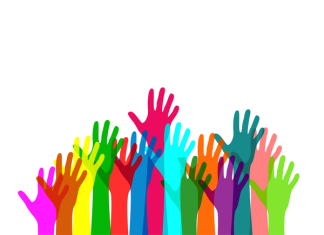
This article, however, is taking a more nuanced look at the problem, because I think by now you guys know that I often eschew the immediate problem in favor of focusing on the ideal we should be striving for.
Mrs. Man
Now that we’ve gotten the obligatory semantics discussion out of the way, let’s take a look at some valiant efforts in the world of character creation. Besides the above-discussed subconscious categorization, one reason I dislike “female protagonists” relates to something Aether said about women (characters) being remarkable simply by them being women. While I am most definitely not angry with Aether as he supports his point and I do agree that his conclusions are a fair assessment of the current situation, I take a bit of personal umbrage with this concept, because if the most fascinating thing about me is that I can bear children and wear a bra, then…
![]()
(Sure, some women in games are used as eye candy, and some games depict women in some unsavory situations, and that is their most important role, but let’s look at games that are trying to offer more than that.)
To counteract this fascination with The Female Person, some developers present their leads (who happen to be women) as a sort of Mrs. Man. It is literally the same character with a different skin put on it. As much as I hate to say it, my beloved BioWare does this over and over again in their games. Gender truly is not an issue. No one cares if the main character is a male or a female, and the stories play out pretty similarly (barring possibly a few dialogue or romances choices) whether you’re Male!PC or Fem!PC. Both genders are equally strong, emotionally stable (or not), suave, attractive, accurate with a gun, and brilliant tacticians. As the song goes, “Anything you can do, I can do the exact same way.”
This is not inherently bad.
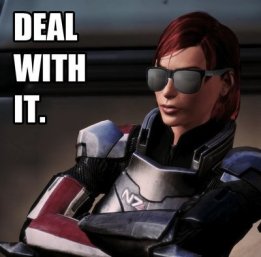
This kind of counter-stereotyping can be a little refreshing, actually. Finally, it doesn’t matter that XYZ person is a woman. Maybe in real life my male coworker just repeated something I said and took all the credit for it after I was ignored, but gosh darn it everyone takes my Grey Warden seriously. It can be a nice outlet, and is a great way to show what a world might be like if people truly didn’t assign importance to gender expression or gender roles.
Of course, I realize that an RPG would be a nightmare to program if the characters were any other way, but when this type of broad brush stroke is implemented poorly… well you get the “female character.”*
I’m going to preface this by saying, again, there is nothing inherently “bad” about signifiers that are traditionally “female”: pink, bows, high heels, or wearing certain clothing. In the physical world, people of any gender are of course welcome to dress however they’d like in whatever colors they choose, and that’s not a problem in the slightest.

However, using these types of signifiers over and over again in a singular way (in media) does one potentially harmful thing: it marks women as different (think Ms. Pac-Man, Nana from Ice Climber, and even the female knight from Rogue Legacy). If everything else is equal between genders, there is no reason for women to be so strongly marked as “different” or “other.” Worse, these characters might be reduced to truly being remarkable only because of this difference: their gender.
Wendy Koopa is a great example of this. She has a pink shell, a bow, high heels, a necklace, and big pouty lips. From her appearance, you can see that she’s a girl. Compare to Ludwig, who looks intelligent. Or Iggy, who looks a little crazy. Or Roy, who looks like a “tough guy.” But what about Wendy? Oh, right. She’s a girl. The only defining characteristic we get from her character model is her gender, compared to her brothers, whose genders are not “marked” in one way or another. The characteristics that define them are their personalities.
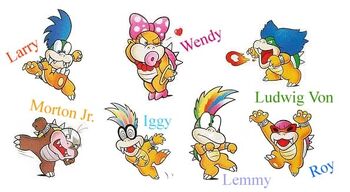
But Athena, I hear you query, there are physical differences between men and women and they must be addressed.
Yes, obviously, things like stature and other physical characteristics are going to be different between men and women, and games like Mass Effect and Rogue Legacy and others will modify character models and armor pieces to demonstrate that. Sure, women’s leg shapes and arm shapes are different, and their center of gravity is different from a man’s.
Yes, by all means make characters look realistic. But some games do better than others when showing that the character is female but showing that she’s not just a “female protagonist”.
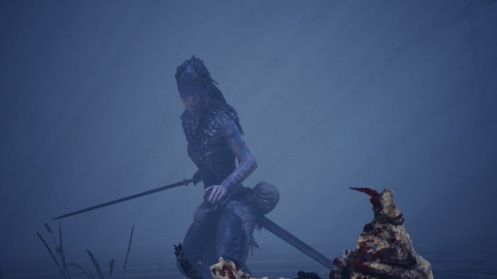
The Heart of Differences
It might be tempting to instead have a woman in a story or game simply defy every gender stereotype and act like a man who just so happens to look like a woman. This begins to exist in a lovely grey area, because on the one hand, sure, why shouldn’t a woman be able to act like a man if she wants to? But on the other hand, most people don’t defy every single gender role/stereotype all of the time. If that’s the personality of your character, sure, but that will need to be written very well into the character’s design so it doesn’t feel fake or forced.
Which brings us to the quagmire of the actual differences between men and women. Obviously there are biological and physical differences: men have more upper body strength, women have better dexterity, men need less sleep, women have higher tolerances for pain, men have better depth perception, women see color slightly better, etc etc. But games also deal with the societal differences between men and women, which are fluid between cultures and even between people. Societal pressures push us in different directions, and we respond to those pressures dynamically, sometimes accepting and sometimes rejecting what society deems “appropriate” for our gender.
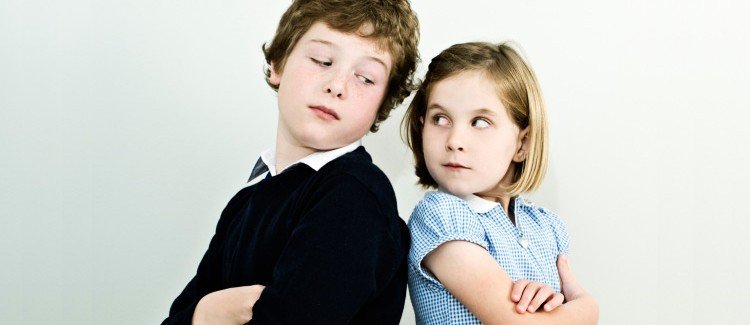
Wonder Woman is a fantastic example of this (you knew she would come up eventually). She defies many traditionally-female gender roles by being as physically able as a man, wearing whatever the heck she wants, and being assertive. She also accepts (read: acts within) some traditionally-female gender roles by being driven by her emotions, specifically compassion. She defies stereotypes then by actually drawing strength from her emotions, rather than being crippled by them. Her acceptance and rejection of gender roles changes based on the situation she is in. Every person in life, regardless of gender, acts like this. So when we see a character that acts like this, as well, we are drawn to them.
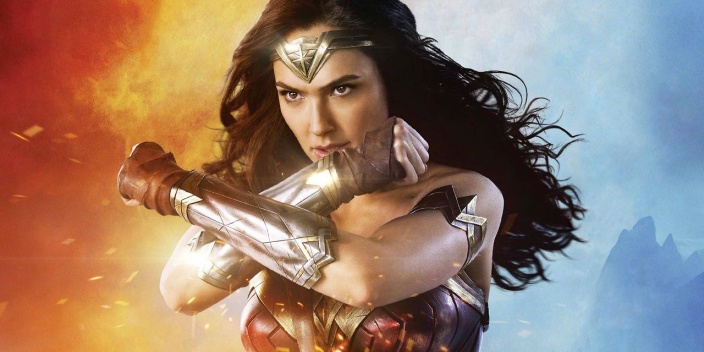
And then we look past their gender. Sure, maybe Ashley Williams’s armor is pink, but she’s so much more than just “that female soldier” that her appearance is hardly mentioned.
What’s the Answer?
That’s a great question. Given some of the fantastic protagonists we’ve seen over the past year, it seems like at least a few people are doing something (or a few somethings) right. So I’m going to challenge you with something: From the following list, pick one protagonist and tell me what gender norms they accept, and which they deny, and whether/how this changes during their journey.
- Chloe Freaking Frazer from Uncharted: Lost Legacy
- Aloy from Horizon: Zero Dawn
- Zelda from The Legend of Zelda: Breath of the Wild
- Senua from Hellblade: Senua’s Sacrifice
- Cora from Mass Effect: Andromeda
- B2 from Nier: Automata
What is it about these women that are so remarkable?
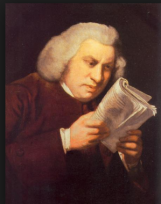
I’ll give an example. Cassandra from Dragon Age: Inquisition defies many stereotypes. She wears her hair cut very short, wields a sword and shield canonically better than the other (male) warriors, and really loves poetry. While at a first glance, that seems like a cute little counterpoint, in reality, she defies some stereotypes and accepts others. She accepts the “societal pressure” to enjoy sappy, romantic writing, but only when it’s convenient for her. Other times, she turns it off and kicks the stuffing out of people.
Midna from Twilight Princess is strikingly beautiful, a princess, and can kill a person with her hair. Zelda from the same game actually takes up a sword to defend her kingdom, and then rides with Link to fire Light Arrows at Ganondorf in the final battle, all while wearing her delicate royal attire and maintaining her court manners. Surprisingly, Ashley Williams gives the best summary of what it means to be a good character:

It’s this interplay of accepting and denying the societal pressures put on us that create good characters of either gender, and realizing that these relationships are fluid and may change with our circumstances.
That’s why I don’t like”female protagonists.” There is so much more to someone than their gender, and until we consistently see past that, our progress will not be enough.
So now, I put the question to you:
What is it that makes a good character? What is it about the above-mentioned characters that make them so remarkable? Are they examples of good female characters, or are they simply good characters who happen to be women? How can we keep moving forward with good examples of representation in media? Let me know in the comments!
Thanks for stopping by, and I’ll see you soon!
~ Athena
What’s next? You can like, subscribe, and support if you like what you’ve seen!
– Support us on Patreon, become a revered Aegis of AmbiGaming, and access extra content!
– Say hello on Facebook, Twitter, and even Google+!
– Check out our Let’s Plays if you’re really adventurous!


This was very thought out and I enjoyed reading it. I was intrigued by the title and became more interested as I went on. Personally, a good character is just someone who can kick butt and still be a sappy geek at the end of the day.
LikeLiked by 1 person
Thank you! I’m glad you clicked, and even more glad that you stayed! This is certainly something to think about. I agree that a good character is someone who is as three-dimensional as possible, like you said. Not everyone is a stereotype all the time, after all 🙂
LikeLike
This is a great article and one that resonates with me. My wife and I just talked about this, though I can’t remember the game – it happens so often in RPGs, though. The warrior, the scholar, the rogue, and the girl. Being female should not exclude someone from being any of those other things, and until games embrace that there is still progress to be made.
As for your question, I’ll speak to Zelda as that is the only game on this list I have played (also, spoilers for Breath of the Wild):
As a female of House Hyrule, she is expected to have the power to seal away darkness. She is expected to be spiritual, putting her faith in the goddesses. And she is expected to be protected, always having a knight (Link) assigned to her. During various points in her story she rejects all of these things – she wants to be a scholar, and when she does not display the ability to seal darkness she cries out to the goddesses in anger. She holds a grudge against Link both because she feels he isn’t necessary and also because she feels inadequate herself.
Interestingly, she grows to conform to the gender roles she has been assigned by her society despite her initial rejection of it, and despite the fact that her father who pushed her so hard came to regret asking her to be anything other than her own self. But Zelda finds a way to be what society expects of her on her own terms – yes she seals the darkness with powers from the goddess, but she’s still a scholar. Yes Link protects her, but she protects him and ultimately saves his life. She finds a way to be both who she is expected to be and also who she wants to be, which is what I think makes her really special as a protagonist.
LikeLiked by 1 person
I’m so happy to see that Zelda is getting a more complex role as time goes on. I’ll get to BotW eventually, and I’m really looking forward to seeing how they developed her!
You’re right about the RPG “group.” And I’d hazard a guess that The Girl is usually a bard or a plot point? Anyway, I *am* happy with the strides being made, but you’re right that until it’s not remarkable anymore, we have some way to go yet.
LikeLiked by 1 person
I so know what this b-post is about, for me. When I hear of someone who never had a chance because of where, how, what they were born to, and how fortunate I must be to be a WASP – I am robbed. Robbed?? Yes, robbed of who I am and what it took to earn every success in my life and appreciate the preparation+ opportunity> to execute my own fate. Some of my ancestors came here in chains from Scotland. The Irish, well we all know whiskey was invented so the Irish would not rule the world. I hope for peace and equality for every woman and man of every ethnicity. Can we all just get along?
LikeLike
Thank you for stopping by and commenting!! I certainly hope that one day we can all get along. Many people experience hatred and bigotry, and sometimes at the hands of those who have been treated with hatred and bigotry themselves. it seems like you might think this article was about women being helpless victims due to some big, bad boogieman, or trying to belittle the success of others. This is not the case. Many minorities had to fight for their equality, and this post is simply meant to highlight an ideal future for one of those groups. But yes, I say again, I agree and hope that one day we can all get along, no matter gender, color, religion, or any other label that separates us. Again, thank you for the comment and I hope to see you back again!
LikeLike
I think the entire medium of video games has that problem where people praise a game, saying “the writing is good” while attaching the signifier “for a game”. I kind of think many artists within the medium end up internalizing it, which in turn, could be one of the causes of that gender disparity. If nothing else, I think it causes too many artists to settle for being merely good enough rather than exceptional.
LikeLiked by 2 people
Yes, you make a good point. It could be that writers and artists hold themselves to a different/lower standard, as tends to happen when something is labeled as “other” in a negative way. So you see some of the issue with being in a minority group IRL, as well…
LikeLike
It never pays in the long run to settle for being better than the worst, I’d say. Becoming complacent is detrimental.
LikeLiked by 1 person
I love this article. It articulates very clearly many things that I have struggled to articulate myself about games and gender.
Naughty Dog writes great characters, and many of them happen to be women. Their characters are nuanced, well acted and complex, and they are treated like any other character: capable, fallible, angry, kind, treacherous, badass, naive. All of those qualities make them interesting and unique.
Do you mind terribly if I share this article on my Facebook page? I think it’s a great starting point for discussion.
LikeLiked by 1 person
I’m glad this resonated with you!
You’re absolutely right that when characters are nuanced and complex, it makes their gender more of a moot point. Naughty Dog does have great characters who happen to be women (and men too! ).
You can absolutely share this! I’m very flattered. I hope you get some good discussions going! 😀
LikeLiked by 1 person
I have way too many things to say about all of this, so I’ll just say super-awesome-fantastically-great article! 👍
LikeLiked by 1 person
Well thank you! I’m super-incredibly-absolutely ecstatic you liked it so much!!
LikeLiked by 1 person
This was such a good article! Lara Croft sprang to mind for me actually when you mentioned the difference of men having more upper body strength vs women having better dexterity. Her primary weapons are guns and the bow and arrow preferring not to do face to face combat unless necessary and she very dexterous so I think that fits well. Of course she was unfortunately sexualised a lot but I always liked her for being a lady while also kicking ass. I get what you mean about not liking female protagonists though, for the most part, it often just feels like the game designers felt like they had to do it rather than actually wanted to.
LikeLiked by 2 people
That’s a great example. Poor Lara was originally conceived as simply as Indiana Jones but having a woman’s body: smart, capable, nice to look at, but mostly smart and capable. But you’re right that, despite being sexualized by the gaming community at large, she is a great character that set a foundation for future character to build upon.
I think we’re beginning to see a shift as gamers respond to the good characters, versus the perfunctory ones. Like in Mass Effect: Andromeda, BioWare fumbled the handling of a trans character (which seemed to be included “because PC reasons”), but gamers lauded the inclusion of Krem in Dragon Age: Inquisition, so I’d hazard a guess as to which way they’ll handle that type of character in the future…
LikeLiked by 1 person
https://hyperallergic.com/377975/an-illustrated-guide-to-linda-nochlins-why-have-there-been-no-great-women-artists/?utm_campaign=coschedule&utm_source=facebook_page&utm_medium=Hyperallergic&utm_content=An+Illustrated+Guide+to+Linda+Nochlin%27s+%E2%80%9CWhy+Have+There+Been+No+Great+Women+Artists%3F%E2%80%9D Pardon the long link, but it seems applicable. Also, I found it interesting the mention of Wendy Koopa from a series with Birdo. I’m always amused by the differences between original intent, localization, and popular impression; ‘s interesting cultural commentary.
LikeLiked by 2 people
That’s a very pertinent read. Thank you for sharing it!
You’re right that every character and story is going to be examined through a lens of the culture of the person looking at it, for better or for worse. This isn’t to say that any of these characters are “bad” or “detrimental” to anything… they’re just not where we should stop as a society.
LikeLike
Reblogged this on DDOCentral.
LikeLiked by 1 person
Great article! Like LightningEllen, I have a lot of thoughts after this read and putting them to word might result in a big old wall of text. I will try to put a bit of order to that chaos and summarise:
-The problem with the “The Girl” type of character ties with the ratio of female characters to male characters you have, both in general and within a work. In a perfect world there would be more diverse female characters out there, enough that a character solely defined by the fact that she is a woman in a team of men, or someone who simply checks all the boxes of female stereotypes, wouldn’t be as affronting. I would still think it is lazy writing, but that’s a different story.
-Even if it is due to technical restrictions that the people at Bioware write the female and male variable of a character as the same person, I am glad they do. It forces them to write a rounded character that is complex for reasons that aren’t their gender,
-Another thing I keep thinking about is why. Why does someone write a female character? Usually, you will notice that *some* writers just use and reuse the same mold for their female protagonists. Is their motivation just to write a character in a story or to put in words what their own personal idea of women? Are they writing their personal fantasy? Do they take writing as a form of activism, trying to break or reinforce a stereotype?
LikeLiked by 1 person
Thanks for the hat tips! Glad that, even though the subject matter does get you angry, you still appreciate what I have to say about the subject.
I don’t think the Bioware et al approach here, where men and women are interchangeable in the face of what their actual characters are, is problematic. In fact, I think that’s one of the ideals we should be moving towards. Gender doesn’t matter there because gender doesn’t matter. They are not characters confined by their gender roles, they are who they are. I think that’s actually a point to work towards. Deliberately writing a character to avoid gender roles does, as you mentioned, often lead to its own problems, but writing a character without gender roles in mind tends to deliver a lot more complete of a character.
Fact is, even in meatspace, the gender of most of the people we interact with does not actually matter all that much. Same with many characters we play as. I welcome more of those Bioware styled protagonists, being a character first and their gender way down the list in importance, I think it’s a move in the right direction.
LikeLiked by 1 person
Of course! This is a subject that gets me riled up, sure, so I do appreciate seeing someone else’s calm and logical perspective on it. I’ve been (ironically) so happy to see some real discourse about how there still *is* a problem, and why that might actually be, so thank you for being part of that!!
I agree! Their approach isn’t particularly bad, and their NPCs are also great examples of characters who are great, and then just whatever gender they are. It’s certainly an ideal and, like I said, it’s refreshing to play as a character like that. Anything taken to an extreme (not that BioWare does this usually… sans one recent trans character in Andromeda) is not good, but overall they do walk a very nice line where, regardless of gender, the character is believable.
I think it depends where you go. In some places, gender still matters more obviously than others. In other places, it’s importance is subtle, but still there. but you’re right that gender matters less than it once did. Interestingly, that’s what we’re starting to see in games too.
Thank goodness for BioWare, right? 😀 haha
LikeLiked by 1 person
This is one of the reasons I love the new Star Wars episodes. The cast I’d incredibly diverse, but they’re not just ticks on a form. They each have their own arcs, which of course intertwine, but none of them are only defined by their demographics. In fact I could describe all of the characters without giving any demographic trait and you’d know who I meant.
There was some interesting standard deviations about the differences in the genders. It’s not all that significant and there’s a great deal of overlap. I’ll see if I can find the study.
LikeLiked by 1 person
This is an absolutely amazing read. As always, I applaud you for tackling these important issues. Personally, my favorite female protagonists are confident and strong. By strong, I don’t necessarily mean it on a physical level, but more on an emotional level. I like seeing women that stand up to hardships and danger and those that learn from situations and strive to grow. My least favorite are the damsels in distress that are ONLY that, like Peach for the most part. I found Zelda from BotW and Ocarina of Time to be strong females because of their willingness to act in a smart and strong manner despite all odds. Yes, they did end up as a damsel, but I can’t discount the characterization they portrayed in both BotW’s memories and as OoT’s Sheik.
My take on the whole Mrs. Man situation is a middle ground. I don’t mind who the protagonist is as long as I can resonate with them and understand their motivation and development. If it’s a woman who is indistinguishable from a man, then so be it. It it’s a woman who’s very “womanly,” then that’s great too. I imagine Bayonetta might fit into that category though I have yet to play her games. I just like good characters, and I love that games have warmed up to the idea that women can have excellent characterization regardless of how “manly” or “womanly” they are. I know I’ve rambled, so I’ll end here haha.
LikeLiked by 2 people
Thank you for your thoughtful comment! I agree that the best characters are more than just damsels in distress. Even during OoT, I got the feeling she was kidnapped because she was royalty and had let her guard down, not because she was a woman and “that’s what happens.”
That’s a good stand to take, I think. None of the things I talked about are inherently wrong, they just need reasons. There are of course real women who fit the Mrs. Man stereotype because that’s just who they are! I think in a story there needs to be clear reasons/story support, though, just because all the people are, by their nature, fake the reasons can’t always be “just because.” I wholeheartedly agree with you, though, in your response to games warming up to the idea of getting away from the stereotyped “manly” or “womanly” characters/stereotypes! We are on the right path!!
LikeLiked by 1 person
Well managed, thank you. Just hurt lately. I’ll be sideways for awhile I guess.
LikeLike
I like your last closing question to the whole thing, whether characters are great because they are female, or they are great characters that just happen to be female. I feel like that can be a good personal answer from both sides.
For me though, I tend to look at it as good characters that just happen to be female. I do notice that they are female, but it’s not the defining thing for me. Senua for example is a warrior from the get go. What stands out to me is what she’s willing to do to save a loved one, literally goes to hell and back. I don’t think that her being female defines her at all. It’s her strength inside and her fearlessness that does to me.
Zelda is an interesting one, because initially she’s in a grey area. She does sometimes end up fitting into that damsel in distress role, but as time goes on, and even in some early Zelda games, she plays a pivotal role in defeating Ganon. In many of those games, Link cannot simply do it without her, and she sometimes takes quite an active role in doing so.
I’m with you on the whole “female protagonist” label. I really think it’s irrelevant and it seems media likes to throw that term around and make it a big deal that these characters are female, when that is not what makes them special. From the list you provided, for the ones I am familiar with, to me they are simply strong and in some cases, pretty complex characters. They are more than JUST being female.
Great article as always.
LikeLiked by 1 person
I think the most convincing female character I’ve seen in gaming is Max from Life is Strange. She is a teenage girl who acts like a teenage girl. She has no physical powers or abilities that would permit her to win a fight. All she can do is manipulate time to get out of situations.
LikeLiked by 1 person
Ah, this is still on my to-play list. I’ve heard mixed reviews about the “teenage-ness* of the characters but from what I’ve seen, Max is, by all accounts, a *typical* teen. That’s so great to see, really.
LikeLike